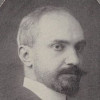“ we desire to go no further, can go no further; we find rest in perceiving, and satisfaction in the present. Perception suffices for itself, and therefore what springs purely from it, and remains true to it, for example, a genuine work of art, can never be false, nor can it be discredited through the lapse of time, for it does not present an opinion but the thing itself. ”
Arthur Schopenhauer, The World as Will and Representation (1819). copy citation
| Author | Arthur Schopenhauer |
|---|---|
| Source | The World as Will and Representation |
| Topic | satisfaction perception |
| Date | 1819 |
| Language | English |
| Reference | |
| Note | Translated by R. B. Haldane and J. Kemp |
| Weblink | http://www.gutenberg.org/files/38427/38427-h/38427-h.html |
Context
“As from the direct light of the sun to the borrowed light of the moon, we pass from the immediate idea of perception, which stands by itself and is its own warrant, to reflection, to the abstract, discursive concepts of the reason, which obtain their whole content from knowledge of perception, and in relation to it. As long as we continue simply to perceive, all is clear, firm, and certain. There are neither questions nor doubts nor errors; we desire to go no further, can go no further; we find rest in perceiving, and satisfaction in the present. Perception suffices for itself, and therefore what springs purely from it, and remains true to it, for example, a genuine work of art, can never be false, nor can it be discredited through the lapse of time, for it does not present an opinion but the thing itself. But with abstract knowledge, with reason, doubt and error appear in the theoretical, care and sorrow in the practical. In the idea of perception, illusion may at moments take the place of the real; but in the sphere of abstract thought, error may reign for a thousand years, impose its yoke upon whole nations, extend to the noblest impulses of humanity, and, by the help of its slaves and its dupes, may chain and fetter those whom it cannot deceive.”
source



